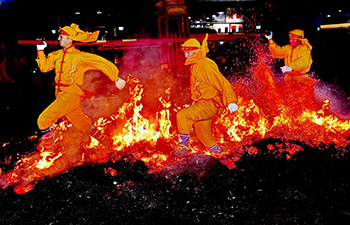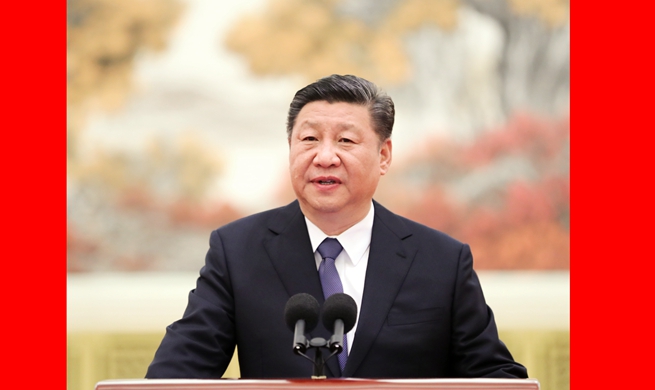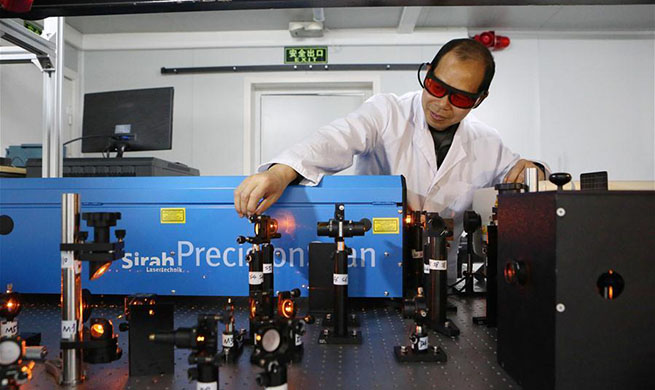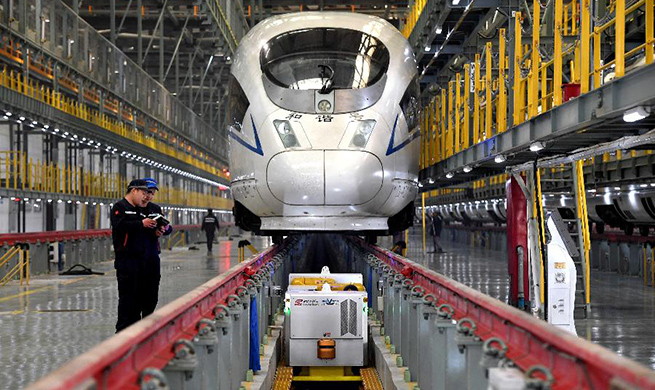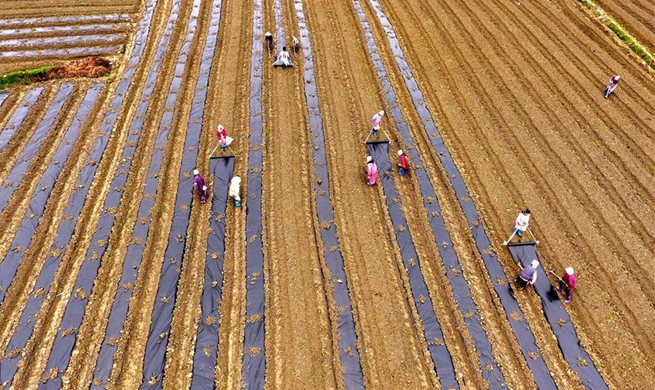ANKARA, Feb. 21 (Xinhua) -- Turkey hosts over 3.5 million Syrian refugees, but soaring inflation and unemployment are testing its hospitality.
The government is seeking ways to encourage Syrians to return home following a much-awaited solution to the Syrian war.
Turkish President Recep Tayyip Erdogan recently held promising remarks following a summit with his Iranian and Russian counterparts, saying that hopes for a political resolution to the conflict in Syria have never been stronger.
Speaking alongside Russia's Vladimir Putin and Iran's Hassan Rouhani in the Russian resort of Sochi, Erdogan said that "hopes for a political solution to the Syrian crisis are sprouting as never before," despite divisions between stakeholders on how to reach it.
The Turkish leader whose country shares a 900-km border with the war-torn country also said that Syrian people in Turkey are longing to return home, adding that Turkey, which now hosts the largest number of refugees worldwide and is saturated to the extreme, has done its best for the Syrian refugees, providing 35 billion U.S. dollars for their welfare amid an economic downturn.
The path toward a political solution is still disseminated with pitfalls but "Turkey works with the aim of a solution in order to allow our Syrian guests to return home," said a government official, adding that "a considerable number" would return.
Erdogan previously announced that Ankara is aiming to form safe zones in northern Syria so that Syrian refugees could return to their home country.
He also stated that nearly 300,000 Syrians had already gone back to areas controlled by Turkish-backed rebels in northern Syria, adding that he expected millions of Syrian nationals to return to the proposed safe zones.
In a surprise move last month, U.S. President Donald Trump said he would withdraw 2,000 U.S. troops from Syria, and Erdogan subsequently said the two leaders had discussed setting up a 32-km deep safe zone in the war-torn country along the border with Turkey.
Some observers believe however that most of the refugees are here to stay in Turkey as it would take many more years to reconstruct Syria and its institutions after a peace process.
For months now, Ankara has threatened to launch a new offensive in northern Syria to drive out the U.S.-backed Kurdish fighters, that control areas in northeastern Syria along the Turkish border, following two previous cross border operations in the past three years.
Although a massive repatriation scheme is not yet in the works and would be linked to a political settlement in Syria, concerns are increasing in Turkey over the faith of the Syrians as perceptions toward them are deteriorating as well as the country's economic outlook.
Inflation has reached more than 20 percent in January year-on-year and unemployment has risen to 12.3 percent, according to data published this week, with a particular concern for youth unemployment which topped 23.6 percent.
Early February, violent street clashes erupted between locals and Syrians in Istanbul's refugee-dense Esenyurt district leaving 12 people wounded.
The social disturbance, which is not the first nor the last, according to local officials, was again related to grievances about rising rent prices, shop owner competition and perceptions that Syrians represent competition for public services and employment.
"The influx of Syrians has triggered both positive and negative changes, especially in the labor market. This results in Turkish workers' displacement and particularly that of the disadvantaged groups, such as women and the less-educated," said Omar Kadkoy, a Syrian researcher in the Ankara-based economic and social think-tank Tepav.
The expert underlined that "Syrians are filling the lower orbits of the labor market and the private sector complains explicitly about the lack of appeal among local youth for labor-intensive jobs," rejecting claims that the refugee community is disrupting the labor market all together.
Kadkoy remarked that Turkey stands out globally with the generosity of accommodating millions of Syrians who are weaving themselves into the socio-economic fabric of the country.
In Ankara's Dikmen district, several thousands of Syrians are gathered in council flats or rented apartments and their hope is to return one day to the homeland.
However, Mahmoud Hawi, a father of three who grew up in Aleppo, a former industrial city that lies to the north of Syria, had a small shop there. He believes that "a return is something hypothetical for now."
"Turkey has been generous but now has its own economic problems. We are here for six years now and my children speak Turkish as good as Arabic, so if we return we want to make sure that we'll have food on the table there," he said to Xinhua.





